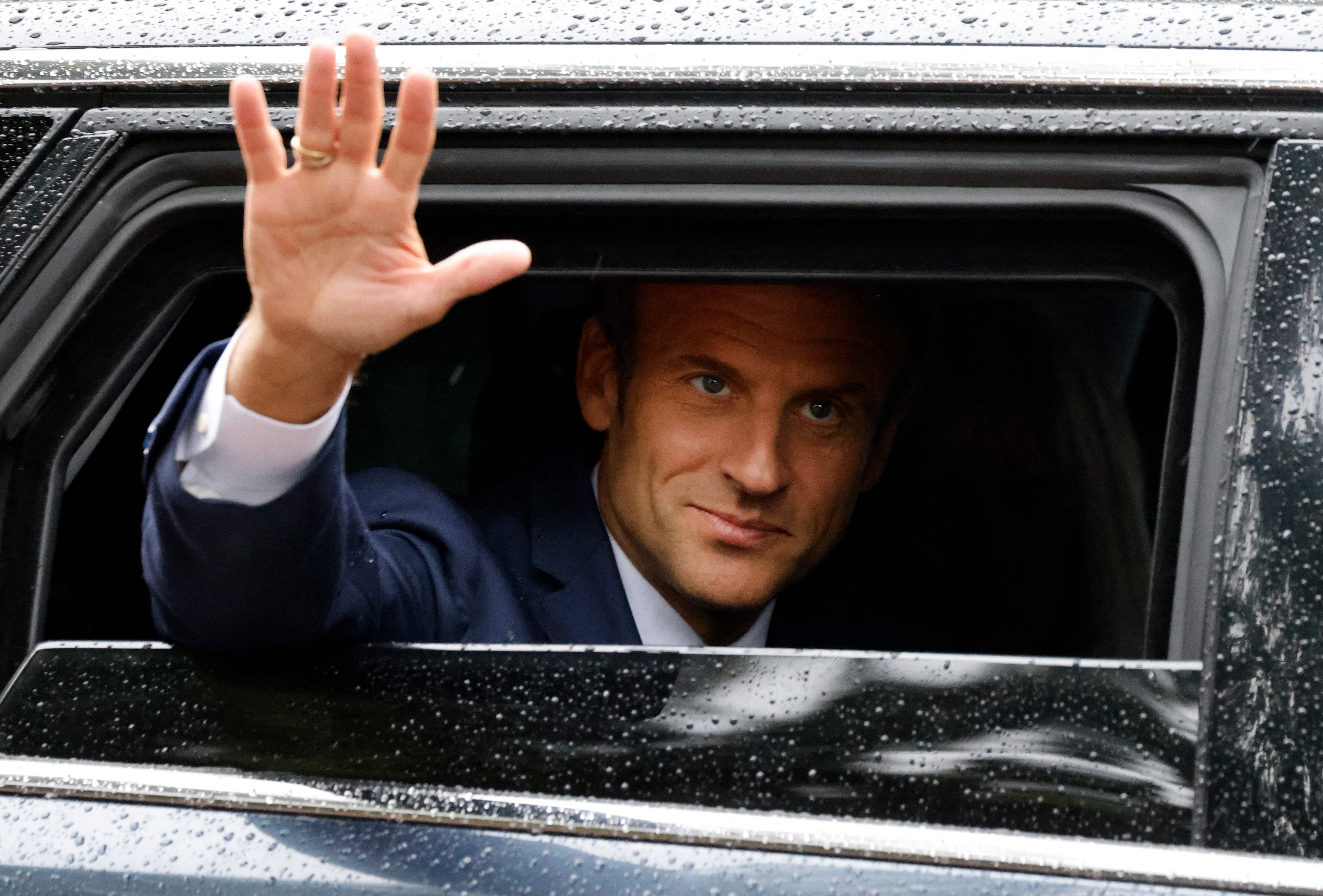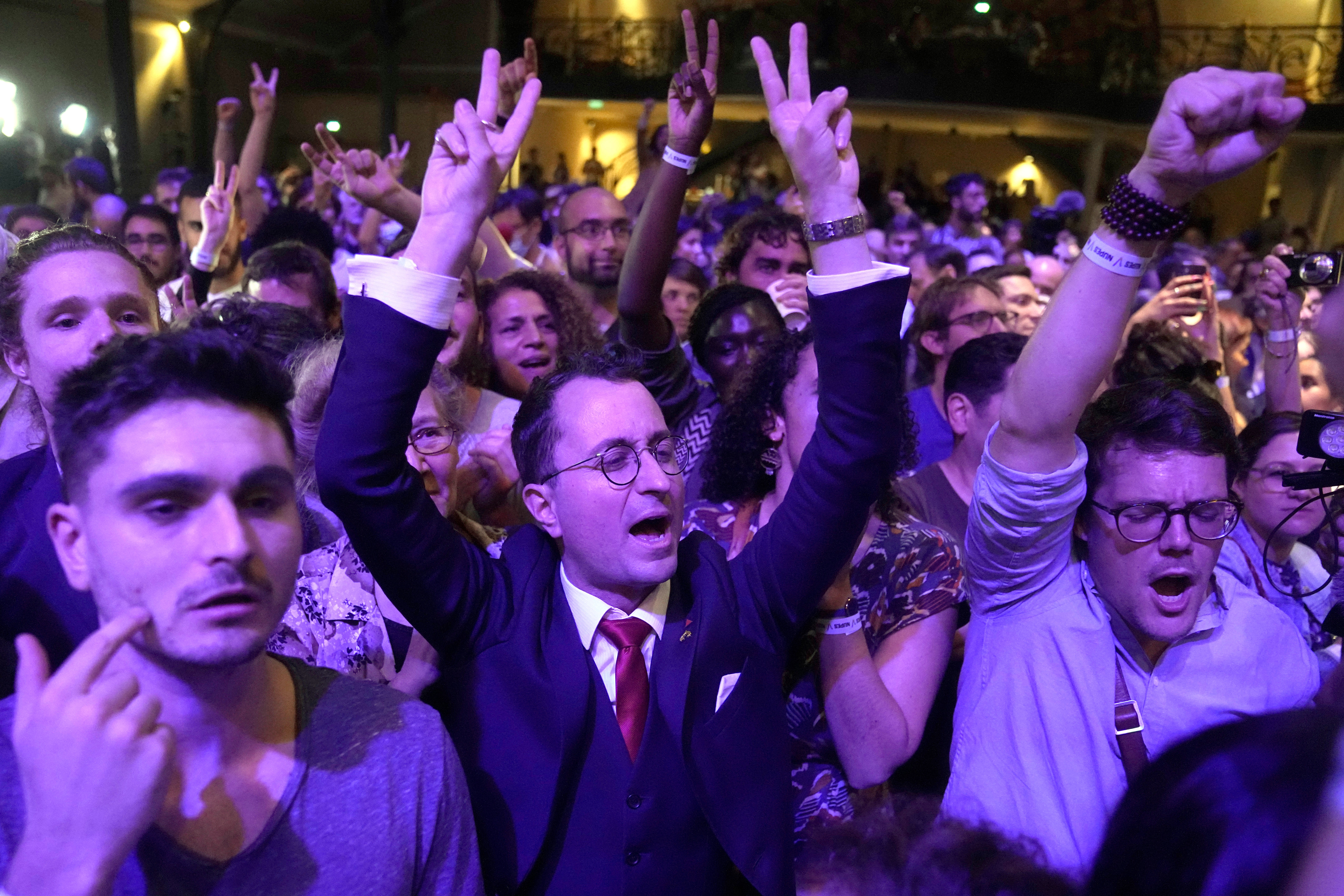Macron set to lose majority in France’s parliament, polls show
President may be weaker by morning as opponents projected to gain power in parliament

Your support helps us to tell the story
From reproductive rights to climate change to Big Tech, The Independent is on the ground when the story is developing. Whether it's investigating the financials of Elon Musk's pro-Trump PAC or producing our latest documentary, 'The A Word', which shines a light on the American women fighting for reproductive rights, we know how important it is to parse out the facts from the messaging.
At such a critical moment in US history, we need reporters on the ground. Your donation allows us to keep sending journalists to speak to both sides of the story.
The Independent is trusted by Americans across the entire political spectrum. And unlike many other quality news outlets, we choose not to lock Americans out of our reporting and analysis with paywalls. We believe quality journalism should be available to everyone, paid for by those who can afford it.
Your support makes all the difference.Emmanuel Macron is on course to lose his absolute majority in France’s National Assembly, after the first projections showed Sunday’s election delivering a hung parliament.
The projections, which are based on partial results, show that Mr Macron’s centrist Ensemble! alliance would win between 200 and 250 seats – much less than the 289 required to have a majority in France’s most powerful house of parliament.
If the projections are borne out, the Nupes coalition, composed of the hard left, the Socialists and the Greens, could make Mr Macron’s presidency less powerful, since the lower house of parliament has the final say in passing laws.
Mr Macron’s second term as president, which he won convincingly in April, looks set to be more testing of his political ability than his first. Without a majority he would still have the ability to rule but would need to bargain with opponents to deliver on his key policies, including tax cuts and raising France’s retirement age from 62 to 65.
The centrists could try to negotiate on a case by case basis with politicians from the centre-left and from the conservative Les Republicains party – with the goal of preventing opposition politicians from being numerous enough to reject the proposed measures. A special measure provided by the French Constitution to adopt a law without a vote could also be employed sparingly.
Sunday’s result could also prove significant for Europe as analysts predict the French leader would have to spend the rest of his second term focusing more on his domestic agenda rather than his foreign policy. It could spell the end of President Macron the continental statesman.

As results began to be announced, Richard Ferrand, the head of the National Assembly and a close ally of the president, said he had been beaten. Cristophe Castaner, a former interior minister and another senior figure who shaped Mr Macron’s first five-year term, also admitted defeat.
A hung parliament is unusual in France: voters have traditionally used polls that follow a few weeks after a presidential election to give the country’s leader a comfortable parliamentary majority – with Francois Mitterrand in 1988 a rare exception.
In another unusual projection of Sunday’s vote, Marine Le Pen’s far-right party was forecast to win as many as 100 seats – its biggest score on record.
Les Republicains and allies could also get as many as 100, which would give them a chance to prop up the president and increase their sway in French government.
Supporters of Jean-Luc Melenchon, a former presidential rival of Mr Macron who heads the Nupes coalition, celebrated after the projections were published. In last week’s first-round vote, the coalition made a surprisingly strong showing.

Shaken by the preliminary results, Mr Macron made a powerfully choreographed plea to voters earlier this week ahead of a trip to Ukraine, warning that a hung parliament would put the nation in danger.
“In these troubled times, the choice you’ll make this Sunday is more crucial than ever,” he said. “Nothing would be worse than adding French disorder to the world’s disorder.”
Some voters agreed, and argued against choosing candidates on the political extremes. Others argued that the French system, which grants broad power to the president, should give more power to the multi-party parliament.
However, these parliamentary elections have once again been defined by voter apathy. Just 38 per cent of the French electorate had voted by 5pm, down from 42 per cent in 2017.
Join our commenting forum
Join thought-provoking conversations, follow other Independent readers and see their replies
Comments